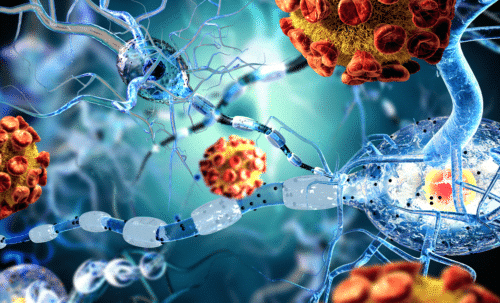MENINGITIS – Meningococcal Vaccination

WHAT IS MENINGOCOCCAL DISEASE ?
Meningococcal disease is a contagious and potentially fatal bacterial infection, caused by Neisseria meningitidis. It is transmitted through close and prolonged contact with an infected person. The bacteria are especially present in the saliva and in the nasal and the throat secretions of the victims. It is possible to get infected through hugging or kissing, or when living together with a contaminated person. It is important to note that some people are carrying the bacteria without being sick, but they can transmit it to other people.
The symptoms of meningococcal disease vary, depending on the stage of the disease. Most of the time, the incubation period lasts between 2 and 10 days. The first signs of meningococcal disease include an acute fever, stiff neck, severe headaches, nausea, vomiting and drowsiness. The symptoms may be different among infants and young children, who can show inactivity and irritability. In some cases, the victims of meningococcal disease experience sensitivity to light and confusion. Meningococcal disease can lead to serious complications, such as deafness, brain lesions and convulsions. If the infection reaches a severe stage, it can result in the death of the victim in a few hours. The disease may also cause a blood infection, which is characterized by fatigue, chills, severe pain, breathing difficulties, diarrhea and dark purple skin rash.
WHAT IS THE RISK FOR TRAVELERS ?
Meningococcal disease occurs worldwide, but the most affected region on the planet is Sub-Saharan Africa. The travelers living or working with local Sub-Saharan African populations are at very high risk for the disease. Note that all groups of ages can be infected with meningococcal disease. The infection is more prevalent during the dry season, between December and June. Cases of meningococcal disease have also been reported in Saudi Arabia, among pilgrims undertaking the Hajj and the Umrah Islamic pilgrimages.
Types of Meningitis
Bacterial Meningitis
Bacterial meningitis can be deadly and requires immediate medical attention. Vaccination against several types of bacterial meningitis is possible. Speak with a Summit vaccination specialist to learn more about whether your itinerary puts you at risk.
Viral Meningitis
While not as severe as bacterial meningitis, viral meningitis can still be very dangerous. Vaccination against some types of viral meningitis is also possible.
Fungal Meningitis
This rare type of meningitis typically occurs in people with compromised immune systems who have been exposed to fungal spores in their environment.
Parasitic Meningitis
Parasites can also cause meningitis but occur much less frequently than viral and bacterial forms.
Amebic Meningitis
Primary amebic meningoencephalitis (PAM) is very rare, but extremely serious. It is caused by a free-living microscopic ameba that lives in warm soil and water.
Non-Infectious Meningitis
Sometimes other illnesses, head injuries, or brain surgery can cause swelling of the meninges as well.
What Are The Symptoms Of Meningitis?
According to the CDC, the symptoms of meningitis include:
- Fever
- Nausea and vomiting
- Muscle aches and pains
- A stiff neck
- Headache
- Cold hands or feet, and mottled skin
- In some cases, a rash that does not fade under pressure
HOW TO PREVENT MENINGOCOCCAL DISEASE ?
Vaccination
A vaccine against meningococcal disease is available. If you intend to travel to a country at risk, you should consider it, especially if you plan to live or to spend a lot of time with local people. You should see a doctor before your departure, he/she will help you to know if you need to be vaccinated. Even if you already got a vaccine in the past years, you may need to receive a booster dose. The duration of efficacy of the vaccine against meningococcal disease is usually of five years. Note that if you plan to undertake the Hajj or the Umrah, you need to provide a proof of vaccination against the disease which is not more than three years old. Infants and young children need more than one dose of vaccine. Even if they are already vaccinated with the MenHibRix vaccine, they are not protected against the A and W serogroups and they must receive 1 or 2 doses of a quadrivalent vaccine before traveling to areas where meningococcal disease is endemic.
Hygiene
In addition to vaccination, you should take some precautions when traveling in a country affected by meningococcal disease to avoid being infected. Always have good hygiene practices and frequently wash your hands with clean water and soap, or with a hand sanitizer containing at least 60% alcohol. Never touch your eyes, your nose and your mouth if you are not sure that your hands are clean. When sneezing or coughing, cover your mouth and nose with a disposable tissue, never with your hands. Throw the tissue in a bin right after use. Avoid any contact with infected or suspected of being infected persons.
IF YOU THINK THAT YOU MAY BE INFECTED :
If you feel sick after traveling in countries at risk and you think that you may be infected with meningococcal disease, consult a doctor as soon as possible. Inform him/her of the areas you have visited and of your activities there. You will be prescribed medicines to reduce fever and pain. It is usually advised to drink a lot of water to avoid dehydration and to rest. It is important that you remain isolated until you have completely recovered to avoid the spread of the disease.
We make every effort to ensure that the information posted on our website is up to date and accurate according to the latest public health recommendations; however, it is impossible for us to make changes on a daily basis.
For the most current travel health recommendations, please call our clinic as make an appointment with one of our travel health professionals.
